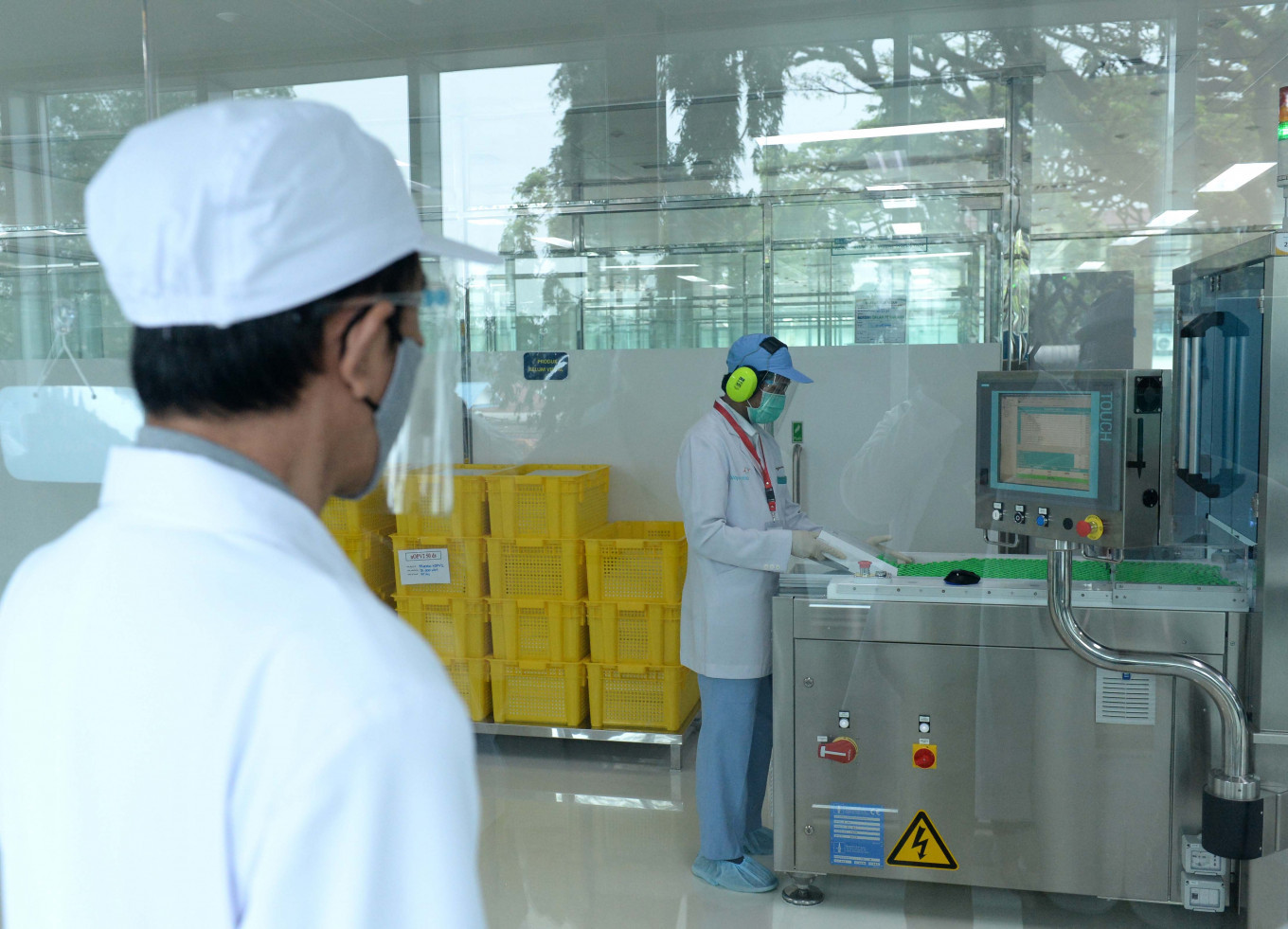Popular Reads
Top Results
Can't find what you're looking for?
View all search resultsPopular Reads
Top Results
Can't find what you're looking for?
View all search resultsVaccine hub ambitions
Whether we can actually become a coronavirus vaccine hub remains in question, as we have less production capacity than the world’s current main vaccine producers, such as China. But it would be a victory simply to produce enough COVID-19 vaccines to fulfill our domestic needs.
Change text size
Gift Premium Articles
to Anyone
I
ndonesia has moved a step closer to its goal of becoming a vaccine production hub, as a series of locally developed COVID-19 vaccine candidates enter the advanced stages of clinical trials.
This is a crucial move, considering the prolonged pandemic and the potential for future outbreaks.
One of the vaccine candidates, called the State-Owned Enterprises (SOEs) Vaccine, was developed by state-run pharmaceutical firm Bio Farma in cooperation with Baylor College of Medicine in Texas, the United States.
It is now in the last stages of clinical testing in humans. If the trials are successful, Bio Farma hopes to start production next month after obtaining approval for emergency use from the Food and Drug Monitoring Agency (BPOM).
Airlangga University has produced another homegrown coronavirus candidate vaccine. In tandem with local firm Biotis Pharmaceuticals Indonesia, the state university is waiting for the green light from the BPOM to hold the final clinical trials for the Merah Putih candidate vaccine, which uses an inactivated form of the virus. If the final stages of trials are successful, the developers say they expect to start production in July or August.
The Airlangga-Biotis project is part of the Merah Putih vaccine development scheme led by the Education, Culture, Research and Technology Ministry. It involves a handful of universities and institutions, each working on different vaccine technologies, from inactivated viruses to mRNA techniques.
If Indonesia is able to produce its own coronavirus vaccines, we will no longer need to compete with other countries to secure necessary vaccine supplies, and we could even help other countries in need.
While no one can really predict when the pandemic will end, the future might depend on how we wield our virus-fighting arsenal – vaccines in particular.
This has become more pressing of late as the country prepares for a possible new wave of cases. It recently reported the first four know local transmissions of the highly contagious BA.4 and BA.5 Omicron subvariants, which have fueled surges of infections overseas.
Indonesia has seen an uptick in COVID-19 infections over the past few weeks after the government relaxed pandemic restrictions further, and the booster dose administration rate remains at a low 23 percent of the targeted population.
Whether we can actually become a coronavirus vaccine hub remains in question, as we have less production capacity than the world’s current main vaccine producers, such as China. But it would be a victory simply to produce enough COVID-19 vaccines to fulfill our domestic needs.
Before the pandemic hit, Indonesia actually was named a “center of excellence” in vaccine supply and production by the Organization of Islamic Cooperation (OIC) in late 2017. With the OIC's recognition, Indonesia is expected to assist the Muslim world in the production of various vaccines and other pharmaceutical products, as well as to advance research on the production of halal vaccines.
It is possible that people may need periodic booster shots to fight COVID-19 at some point, if or when the coronavirus becomes endemic.
But whatever the future holds, Indonesia must step up its game in COVID-19 vaccine production for the sake of the nation's continuing safety.










